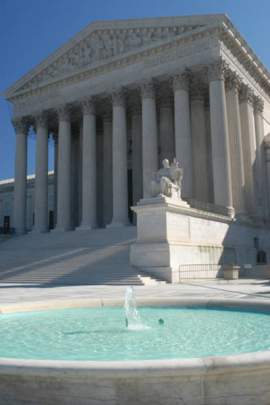
Overview of the Federal Appellate Procedure

What is the Federal Appellate Procedure?
The Federal Appellate Procedure is a legal process mandated by the governing body of a country or nation with regard to the undertaking of the petitioning, approval, judicial review, and subsequent hearings within the realm of legal appeals. The Federal Appellate Procedure is not uniform on an international level, and in certain cases, the Federal Appellate Procedure will vary within the legislative system belonging to a country or nation. A wide range of factors are taken into consideration with regard to both the administration of a specific Federal Appellate Procedure, as well as the oversight of this process.
Federal Appellate Procedure and Legal Systems
Typically, the tenets and precepts latent within an individual Federal Appellate Procedure will be heavily – if not completely – reliant on the legislative ideology undertaken by an individual country or nation. For example, countries that operate a system of Common Law with regard to their respective legal process with differ from those countries or nations enacting Civil Law systems, as well as those enacting both Socialist-based legal systems; the statutes set forth within a Federal Appellate Procedure will be required to exist in convert with applicable legislation in order to provide procedural authentication with regard to Appellate Courts.
The Federal Appellate Procedure of Common Law
Within countries and nations enacting legislative systems classified as Common Law, individual Federal Appellate Procedures will typically share in a wide range of procedures and administrative processes:
Federal Appellate Procedure existing within the realm of Common Law will typically undertake a legal hierarchy with regard to the management of Appellate Courts; courts classified as ‘lower courts’ are named as the legal venues in which the initial judgments and ruling were mandated – courts named as ‘higher courts’ are typically the recipients of appellate petitions with regard to the receipt of retrials and supplementary judicial review
Common Law Federal Appellate Procedure allows its court of appeals to review the entirety of the case requiring an appellate hearing; this is in contrast of certain legal ideologies that disallow for evidence or information not initially brought forth within the original trial
The Federal Appellate Procedure of Civil Law
Within countries or nations enacting a legal system classified as Civil Law, the opportunities and statutes allowed to its citizens differ with regard to both the administrative process, as well as the approval process:
In certain countries enacting a system of Civil, individuals will have the opportunity to directly petition the highest court for an appeal hearing; other Civil Law Federal Appellate Procedures mandate legal hierarchy in conjunction with Common Law Federal Appellate Procedure
Civil Federal Appellate Procedure allows for an appeal hearing strictly in the event of legal defect or judicial mishap; supplemental evidence, data, and information not brought forth within the original trial are not permitted to be included within an appellate hearing
The Federal Appellate Procedure of Socialist Law
This type of legal systems enacts an apportionment and classification of its Appellate Courts, which may include a wide variety of legal specialties in accordance to the events transpired within the case details; furthermore, Social Law Federal Appellate Procedure allows for every applicant to only petition for a single appeal hearing.
NEXT: Federal Rule of Appellate Procedure




















